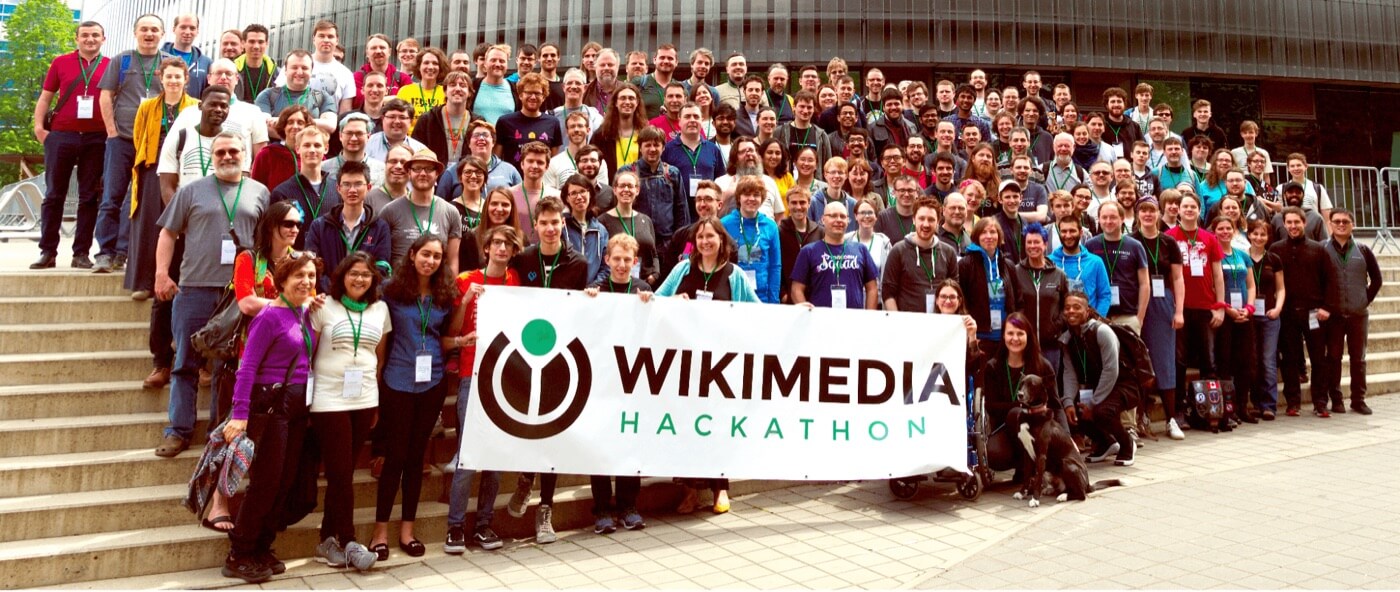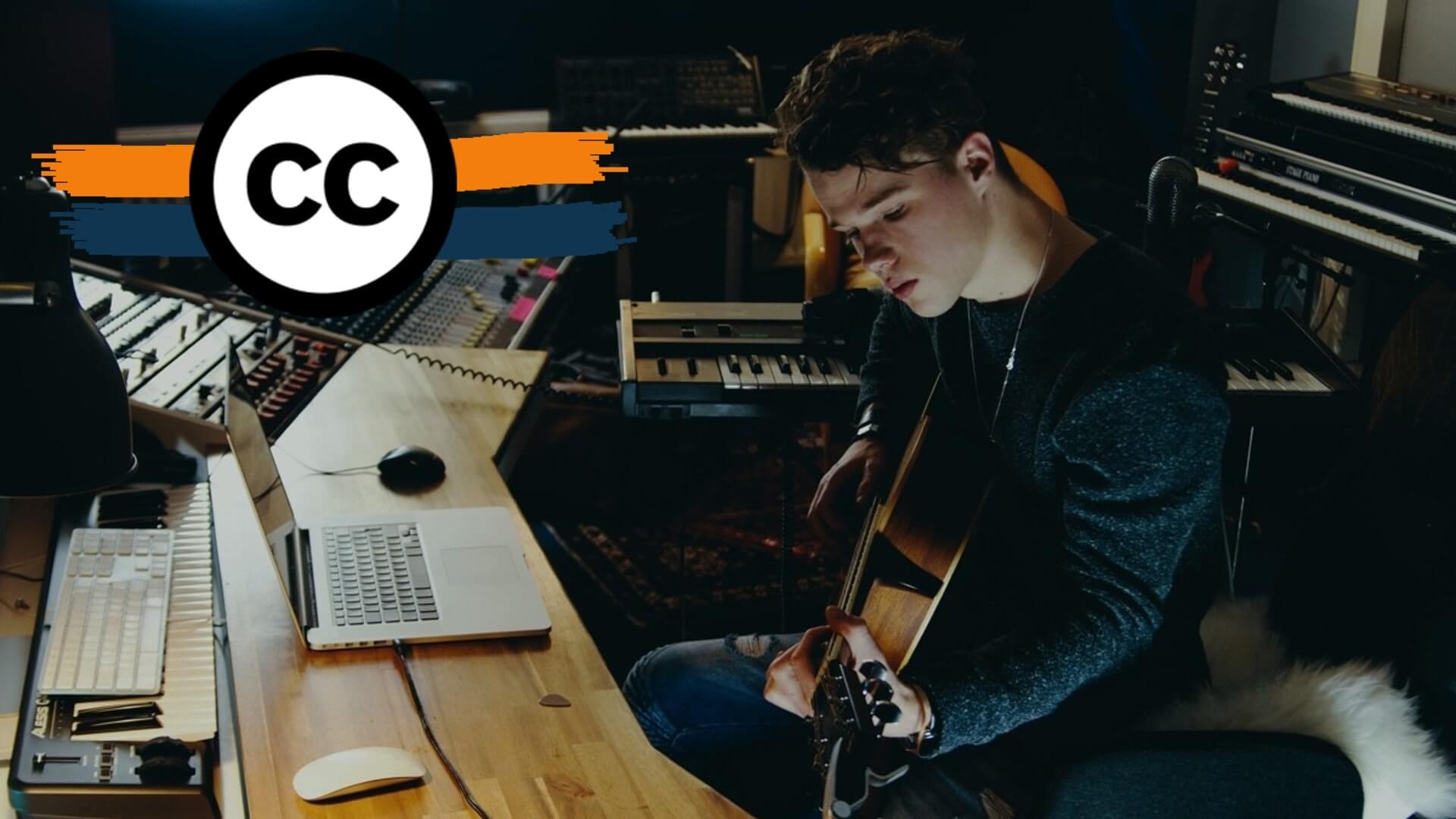In a world of Tik Tok duets, sampled music, GIFs, and unaccredited images cramming Instagram feeds, how do you find out what type of license governs the use of a creative work? The birth of the Creative Commons and Creative Commons licenses in the 2000’s helped encourage the remix culture of the 21st century. But why is Creative Commons important? In this post, we’re going to look at the difference between copyright and “copyleft,” Creative Commons vs. copyleft, and the difference between copyright and Creative Commons.
Creative Commons vs. Copyright
First, let’s define Creative Commons
While CC licenses are no doubt an asset to creators on tight budgets looking for, say, royalty free music, what is the value of Creative Commons licenses for the original creators of a work when they choose to license this way? How are Creative Commons copyright licenses different from copyright?
While most people have heard of copyright, many don’t realize there is an entire category of rights designations that fall under the term copyleft. The Creative Commons arose in the 2000s as a way to create a midpoint between the more strict copyright law of old, and a total lack of reservation of rights on a creative work.
Creative Commons copyright is a way of adding usage designations to copyrighted works. To delineate the difference between copyleft vs Creative Commons, you can think of copyleft as the “parent” of Creative Commons, the conceptual framework within which the many types of Creative Commons licenses have been designed.
CREATIVE COMMONS LICENSE DEFINITION
What is a Creative Commons License?
A Creative Commons license is a usage designation that is built on copyright, that allows for more flexibility on the use and reuse of a given work.
While we often think of these two as opposed to one another (Creative Commons license vs. copyright), Creative Commons copyright licenses are actually more like an additional layer of usage rights granted to copyrighted works. Technically, a work is copyrighted once you create it, but if you want to cover your legal bases, you should also register your works with copyright just to be sure.
There are a variety of different usage designations for Creative Commons licenses, how to use them, and what type of situations make them useful. This is the “left” part of “copyleft” – a plethora of licensing options rather than only one. Knowing these options is a good step for a creative who is considering publishing and distributing work.
What Do Creative Commons Do?
How to use Creative Commons license
Creative Commons licenses range from more strict to more open, like public domain. Some allow for sharing, some for sharing and remix, and some for sharing, remix, as well as commercial usage.
If your main concern is how to make money with Creative Commons licenses, you’ll want to focus on the commercial use designation. That way, you can designate whether users can sell their version of your work or whether they can only do so without financial gain.
Wikimedia Foundation, the entity behind Wikipedia, is the flagship Creative Commons open source cultural resource. It is the open source encyclopedia that is your first stop in writing a college essay – on the way to resources that you can actually quote in your paper.

The folks at Wikimedia
Occasionally, an artist will choose to put their own work into the Creative Commons. For example, Amanda Palmer is a musician who releases all of her work under an Attribution, Non-Commercial, Share-Alike license through Creative Commons.
This license allows her fans to reuse her music as long as they 1) attribute her as the original creator, 2) don’t try to make any money off of it, and 3) that any copies also be licensed under the same type of license.
What Do Creative Commons Do?
Why use a Creative Commons license?
Why would you want to use Creative Commons vs. copyright? Creative Commons licenses are a great boon to our content-driven world. They make it significantly easier to create content rapidly without having to go through the traditional hurdles of applying and paying for individual applications for every single song, photo, or ten second audio tracks.
But how do these licenses benefit the original creators? What about how to make money with Creative Commons licenses? Let’s look at what people say the benefits of using a more flexible license are for creators.
Exposure/Fan engagement
This is one of the main selling points promoted by supporters of CC, who say that creative commons can increase your exposure to potential audiences.
In this line of thinking, creative commons exposes your work to audiences you would not be able to reach on your own.
Shareability of works
CC licenses make it easier and more convenient to share your work, since you don’t have to individually grant usage licenses to every single person who wants to use the work.
Your work can still be profitable
Not only can the original creator still use their work for commercial purposes, you can also designate whether others can do the same.
Check out this video for more information on the perks of Creative Commons:
Fair Use of Content Online
What do Creative Commons do?
What are the drawbacks?
The language around the sharing economy often waxes humanitarian and idealistic. Many espouse the idea that Creative Commons licenses is a development that will usher us into a new Golden Age of a more free and creative human culture.
But there are some drawbacks to copyleft. Wait, the tech industry may have oversold the importance of an innovation? Stunning! Shocking!
While the benefits are obvious for those looking for content to remix or to obtain for a project without having to pay a license fee, the reviews are mixed on whether Creative Commons licenses are good for the original creator. Here are some of the drawbacks of choosing this type of licensing.
Creative Commons Licenses are Irrevocable
Once you’ve gone copyleft, you cannot go back (on a given work). This means that you would have to wait until the copyright on the work expires in order to change its usage licensing.
So, be sure when you choose to put your product into Creative Commons.
Complexity of terminology
While people like to say that CC licenses are an “easy” way to share your work, the truth is, there are an awful lot of designations (twenty-one, to be exact) and a lot of legal terms to understand.
The idea that CC is a simple way to skirt around the conventional “fine print” is simply incorrect. Artists should always read the fine print, regardless of the type of license – and especially in the case of a Creative Commons license.

Just a few Creative Commons terms
Creative Commons can be legally risky
While there is some record of CC licenses being used to pursue damages in court internationally, there is less legal precedent in the United States.
That means if someone misuses the work you have licensed with one type of CC license or another, you may not have any legal ground to stand on. Sharing something for free sounds nice until someone else uses it for financial gain, and you have no recourse to contest it.
Creative Commons licenses can be misused or invalid
It is common, on aggregate sites like Flickr and search engines like Google, for works to be uploaded by people who were not the original creator of the work (and who may not even be people at all, of course).
A Creative Commons license can come back to bite you if you use an image or audio sample but the original creator did not license the work that way.
Related Posts
Creative Commons License vs. Copyright
The Virtues of Copyright & Copyleft
While traditional copyright can feel too strict, it is good to remember that its original function is to protect artist’s rights. Think of the legal troubles many famous recording artists like Taylor Swift, Prince, and Tom Petty, have had with their labels.
The only thing protecting them and giving them any ground to stand on is copyright law – that is, that they were the original creator of the works.

Taylor Swift knows her (copy)rights
We would have no “Taylor’s Version” if Swift didn’t have the creator rights to her music; the label owned the original recordings of the songs, but not the songs themselves. This is one of many examples where traditional copyright is not the villain whatsoever, so it is good to remember it does have its purpose.
Creative Commons licenses also serve an important purpose: they allow creators to modify and designate usage of copyrighted works.
CC licenses are basically a way to say, “I’m flattered you want to use my work, and here are my terms.” They provide a vital tool to help creators engage with audiences while keeping their rights protected.

Creative Commons galore
Creative Commons licenses do, however, carry a degree of risk on both ends. It is good to be well-apprised of what the fine print of a specific license really is before choosing that as your permanent, irrevocable license, and it is equally important to make sure a “CC licensed work” is actually licensed for CC use by the original creator.
More than anything, the most important thing to remember is the Creative Commons Licenses do not operate out in some information utopia, completely separate from traditional copyright – they are merely a layer of use designation that is applied to copyrighted works.
The two designations work together to give creators a flexibility of content and usage designations that reflect the boom of our information-rich era.
Up Next
How copyright free music works
Now that we’ve covered some of the benefits, and costs, of Creative Commons licensing, let's look at one industry in particular: music. In this post, we will dive into the world of copyright-free music and intricacies of its use.
Up Next: Copyright Free Music Explained →
Showcase your vision with elegant shot lists and storyboards.
Create robust and customizable shot lists. Upload images to make storyboards and slideshows.
